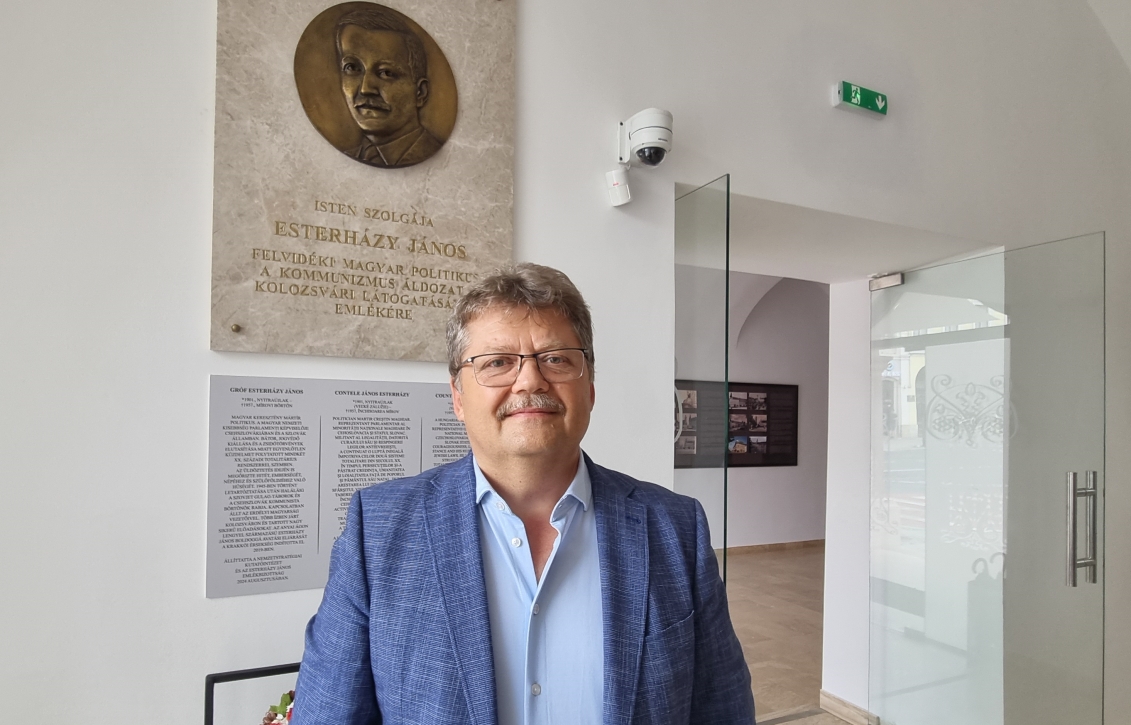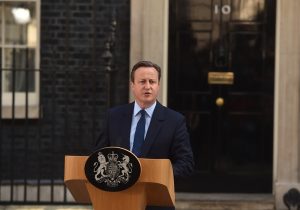
It is important for parents and teachers to show that it is good to be Hungarian and to remain Hungarian.Continue reading

Our team had the opportunity to talk to the Rt Hon Lord Frost of Allenton PC CMG, Member of the House of Lords of the United Kingdom during the Danube Institute-Heritage Foundation Geopolitical Summit in Budapest. We have inquired about the stalling relations between British and Hungarian conservatives.
American conservatives, Republicans have managed to find a common voice with Hungarian national conservatives – intellectuals, educators and politicians. This is not happening with British conservatives and especially since former Prime Minister David Cameron’s premiership, relations between British and Hungarian conservatives have been stalling. What is preventing a better communication and exchange of ideas?
There are a lot of things going on. I think first of all, one of the effects of Brexit was that Britain has become a bit more focused on its own problems for the time being. All the normal contacts we had with Europeans as an EU member has obviously disappeared, and we have not yet put anything in their place. Some of this is not just about Hungary, it is a general consequence of Brexit that some of these Europeans links are not as strong as they could be. Also the conservative party itself has been very divided over the last few years between a social liberal and a social conservative wing. That argument has been playing out and some of the social conservative wing of the party will feel more comfortable with a good relationship with Fidesz (Hungarian government party, ed. note) than others in the party will. As long as that argument is not settled then it will play into the relationship.
Some free market liberals in the conservative party, and I would consider myself to be one, will also look at some of the things that have happened in Hungary with a view of state, hand on the economy and also wonder a little bit about that. So, I think that all those sort of things are playing out in the relationship, affecting it.

Prime Minister David Cameron announcing the result of the Brexit referendum and his resignation in 2016 at Downing Street. Photo: Daniel Deme
Good trade relations are still ongoing between Hungary and Britain, but political ties are sort of stalling. What can be done now to reinvigorate this relationship? Everyone is asking what can we do to bring Britain closer to Hungary, and vice versa, to reinvent our communication and our relations? Currently they are near non-existent. What can be done?
It will be difficult while we have got a Labor government in the UK. I do not think they are particularly interested in being sympathetic to most things happening in Hungary. You know, they are very leftist, social, liberal government. They claim to want to tackle migration and they are looking at Italy. I think they will be edgy about going to look at Hungary because they probably have a distorted view of what is going on here. So, I am just trying to be realistic. We have a left-wing government in Britain, and that is going to effect the sort of partnership it sets up. I would like to see the conservative party building relations with strong conservative parties across Europe. Not within the EU framework, just party to party relations. We need to do that after Brexit and one of those relationships is ought to be with Fidesz in my view, one of many.
Many Hungarian conservatives are reflecting on the Tory’s recent performance. They are finding the root cause of the problem in the fact that in their opinion the British conservatives have relinquished some of the values that have made them conservative, such as the importance of border controls, small state, in order to chase left-wing votes. Is there a prospect in British conservatives rethinking their values anew?
I hope so, is the answer. I absolutely think there are many reasons why we lost but certainly one of them was that we drifted to the left in many ways, left a space on the right for this new party Reform that took a lot of our votes. Generally, this disillusioned many of our supporters that did not come out and vote for us and we got the results that we saw.
There is no future for a conservative party in Britain if it is not properly conservative.
That is not in itself enough to win elections, but is an absolute prior condition to be successfully competitive in any way. All the new candidates for conservative party leadership have in their different ways understood this. They will probably go about it in slightly different ways but I do think that the lesson is being learnt. You have got to be conservative in terms of small state, migration, energy policy, taxes spent. Things that would have been completely uncontroversial 20 or 30 years ago for a conservative party are now much debated. But I think we are moving back.

Photo: Hungary Today
Most Hungarian conservatives view a culturally homogeneous society as the key to preserving democratic values, preserving your perspective on history, preserving continuity. One simply cannot run a democratic country consisting of communities holding opposing values. Yet British conservatives broadly believe in just that, in the possibility of a multicultural society finding common cohesion, a common ethos, a common narrative. Is reality on the ground in Britain confirming this view?
Different conservatives take different views on this question. I mean Britain has always been, to a greater extent anyway, because of the English language, because of the legacy of the Commonwealth, because of the international movements and contacts, we have always been a country that has been more open to people coming and going. I do think that there are limits to the number of people who can come and we have well passed those limits now, and we need a pause on migration.
But I do think it is hard to generalize. For example, if you look at the British Indian Community, they are quite large and they have integrated pretty well as far as one can see. Other communities much less so.
I do myself believe that countries need a core cultural identity set of institutions, a world view and a common set of loyalties that everyone buys into.
I do myself believe that. But I also believe, up to a point, you can have those things and still have a degree of inward and outward migration. I also believe we have way past that limit in recent years and we need to pause and allow ourselves time to integrate.
Featured Image: Hungary Today